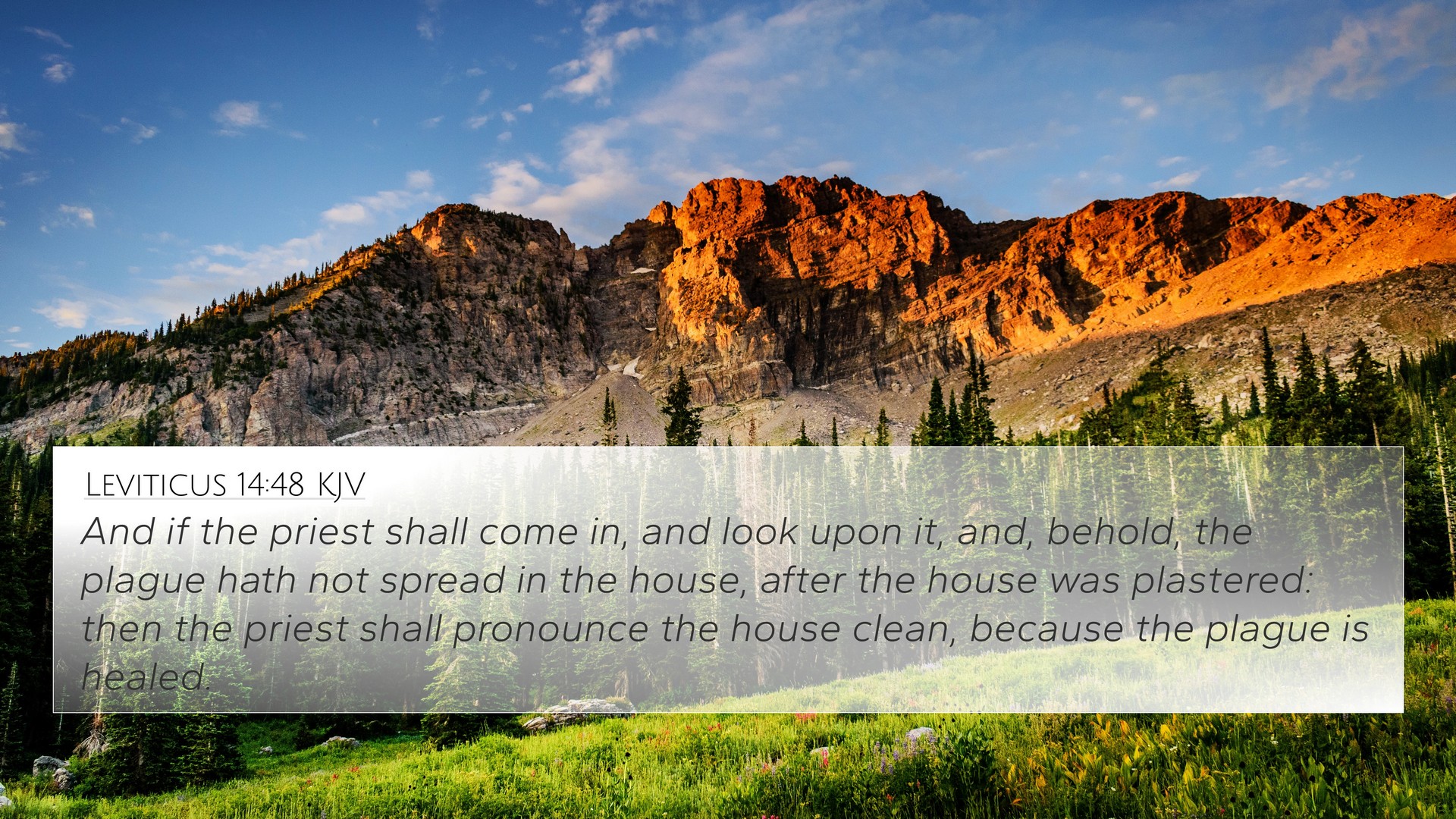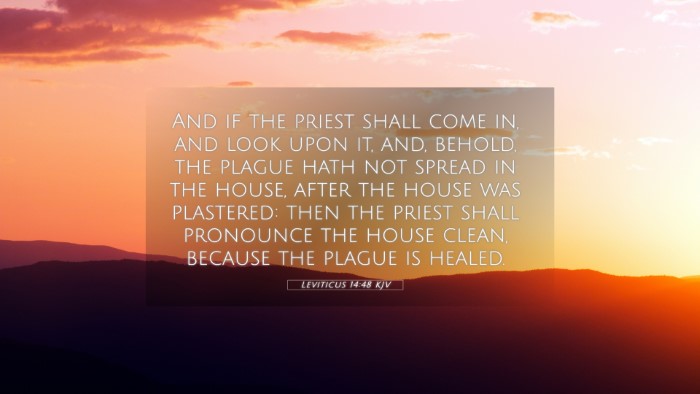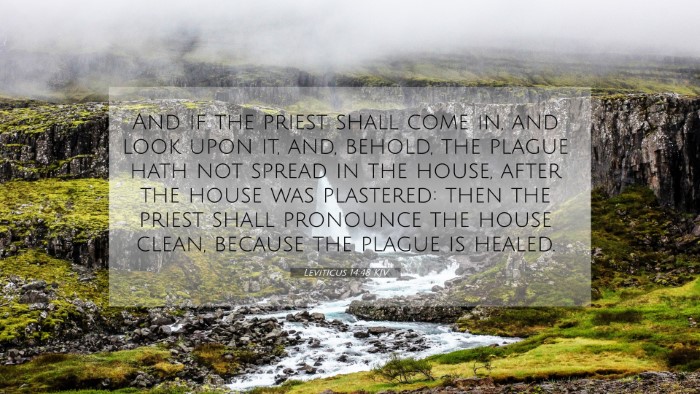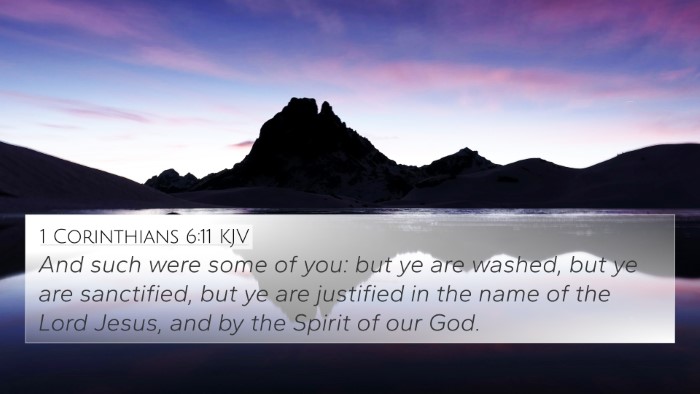Understanding Leviticus 14:48
Verse Text: "But if the priest shall come in, and see the plague, and, behold, the plague be not in the walls of the house, then the priest shall pronounce the house clean: for the plague is healed." (Leviticus 14:48)
Summary of Leviticus 14:48
This verse describes a directive given to priests regarding the examination of houses for leprosy or mold. It highlights the responsibilities of the priest and the process for declaring a house clean following a diagnosis. This is part of the larger context of laws concerning purity, health, and divine instruction within the Israelite community.
Commentary Insights
Matthew Henry Commentary
According to Matthew Henry, this verse emphasizes the importance of ritual cleanliness and the role of the priest as a mediator between God and His people. The priest’s declaration of the house being clean signifies not just physical health but also spiritual restoration. The focus is on following divine guidelines, illustrating God’s concern for both the physical and spiritual purity of His people.
Albert Barnes Commentary
Albert Barnes notes that this verse reinforces the importance of careful examination and discernment by the priest. The term “be healed” indicates that the physical condition can change, thus allowing for restoration to a state of cleanliness. Barnes points out that this signifies hope and renewal, mirroring spiritual healing in one’s relationship with God.
Adam Clarke Commentary
Adam Clarke suggests that the priest's role in declaring a house clean reflects a deeper metaphor regarding judgment and restoration in spiritual matters. Clarke emphasizes that such actions by priests symbolize God’s mercy and the potential for restoration. Furthermore, it represents the collective responsibility of the community to seek help in times of affliction.
Spiritual Significance
The overarching theme of this verse relates to cleanliness and restoration, which can also be tied back to key biblical principles of purity and community. The priest functions as an intermediary, a role that is expanded through Christ’s fulfillment of the law in the New Testament.
Cross References
- Leviticus 14:34-35: Discusses the initial examination process of the house by the priest.
- Matthew 8:3: Jesus healing the leper, connecting to the themes of purification.
- Hebrews 9:22: The necessity of blood for purification, emphasizing atonement.
- 1 Peter 2:24: References the healing of sins reflecting the broader theme of restoration.
- Luke 17:14: Jesus instructing lepers to show themselves to the priest, linking back to societal practices of cleanliness.
- 2 Corinthians 5:17: Speaking of becoming a new creation aligns with themes of healing and restoration.
- Exodus 15:26: Highlights God as a healer, reinforcing the principle of divine health in the community.
- James 5:14-15: Discussing prayer for the sick where the faith of the church community is essential for healing.
- Galatians 6:1: Encouragement for believers to restore one another in a spirit of gentleness, echoing community responsibility.
- Revelation 21:4: The ultimate promise of a world without sickness or pain signifies the end of all forms of purification.
Connections and Themes
The themes presented in Leviticus 14:48 reverberate throughout Scripture, illustrating the importance of purity, both physically and spiritually. The connections between biblical texts serve to deepen understanding, highlighting how the Law in the Old Testament leads to the principles of grace and mercy seen in the New Testament.
By exploring cross-referencing Biblical texts, believers can develop a more profound understanding of how Bible verses relate to each other, ultimately enriching their study of Scripture and their faith journeys. Practical tools for Bible cross-referencing, including Bible concordances and cross-reference Bible study guides, can assist in discovering these links.
Conclusion
The examination and declaration of a house as clean in Leviticus 14:48 serve as a powerful reminder of God's desire for His people to maintain both physical and spiritual purity. This verse underscores the importance of community, restoration, and the role of spiritual leaders in guiding their flock towards wholeness.









